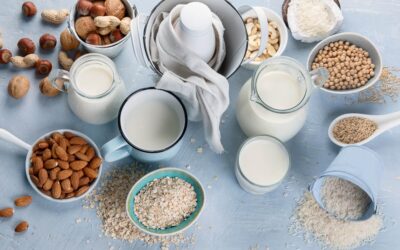Diabetes touches us all. If you personally do not struggle with the disease, chances are you know someone who has been diagnosed as a type 1, type 2, or even prediabetic. In fact, according to International Diabetes Federation, it is estimated that someone will die from diabetes or its complications every seven seconds, and 50-percent of those deaths (4 million per year) will be under the age of sixty. Popular knowledge advances that sugar is the adversary of the diabetic, but researchers have come to find that high levels of protein consumption are also heavily associated with the onset of prediabetes and type 2. A new study has delved further into the topic of protein and diabetes to determine if the protein source matters, and the results conclude that it certainly does.
Animal-based protein—specifically that from meat, fish, and dairy—was shown to significantly increase the risk of both prediabetes and type 2, whereas plant-based proteins had no statistically significant effect on the promotion of this disease.
The study, “Associations of Specific Dietary Protein with Longitudinal Insulin Resistance, Prediabetes and Type 2 Diabetes: The Rotterdam Study,” analyzed data from 6,822 participants over the course of 17 years. The goal was to observe the onset and progression of the disease in individuals who were non-diabetic or merely prediabetic. Prior to the study, food questionnaires were used to measure each participant’s protein intake and analyze consumption habits. Additional measures were taken to adjust for variables including fasting blood samples, pharmacy records, smoking habits, waist circumference, family history of type 2, exercise frequency, and more. In essence, the research was thorough. The study concluded with 931 documented cases of prediabetes and 643 cases of type 2.
Analyzing the sources of each participant’s protein intake, researchers found that the evidence was definitive—higher amounts of protein from meat, fish, and dairy drastically increased the risk and eventual diagnosis of diabetes. In one model, replacing just five-percent of a participant’s carbohydrate intake with dairy increased the development of prediabetes by 26-percent—demonstrating that even moderate amounts of dairy can greatly undermine one’s long-term health. Plant-based protein—whether it was from vegetables, fruits, legumes, nuts, or grains—favored more positive overall health outcomes.
It has been said that not all protein is created equal, and this eye-opening study supports that claim. Animal-based proteins, such as the proteins found in dairy, can negatively impact human health. Brought to light by Dr. T. Colin Campbell through The China Study—the most comprehensive analysis of nutrition and disease—animal protein has also been linked to increased risk of hormone-dependent cancers. The truth is that we do not know all the ways in which animal-based protein affects us, but more and more research is suggesting that it may be doing far more harm than good. Conversely, plant proteins continue to prove themselves as benign sources of this essential nutrient.
As consumers, we all have a choice. We can choose to take risks that jeopardize our health and the health of our families, or we can choose a safer product that delivers what we need without potentially chronic side effects. In a world where variety abounds, dairy just doesn’t make sense.








